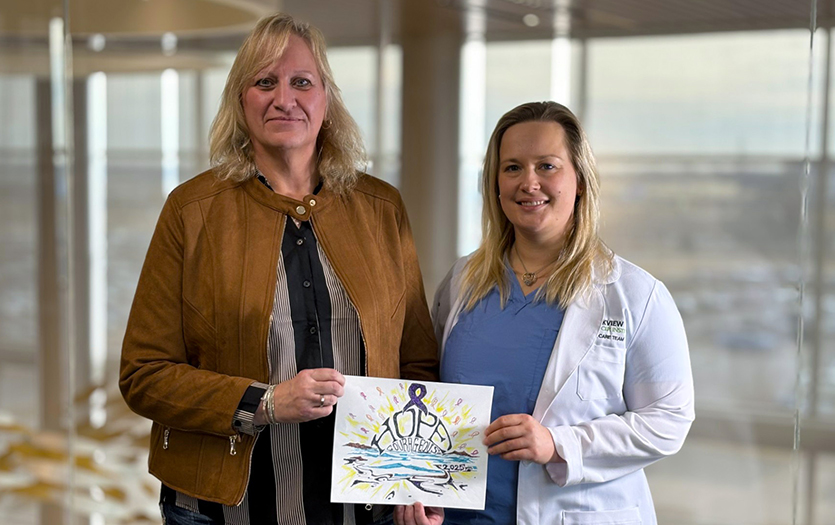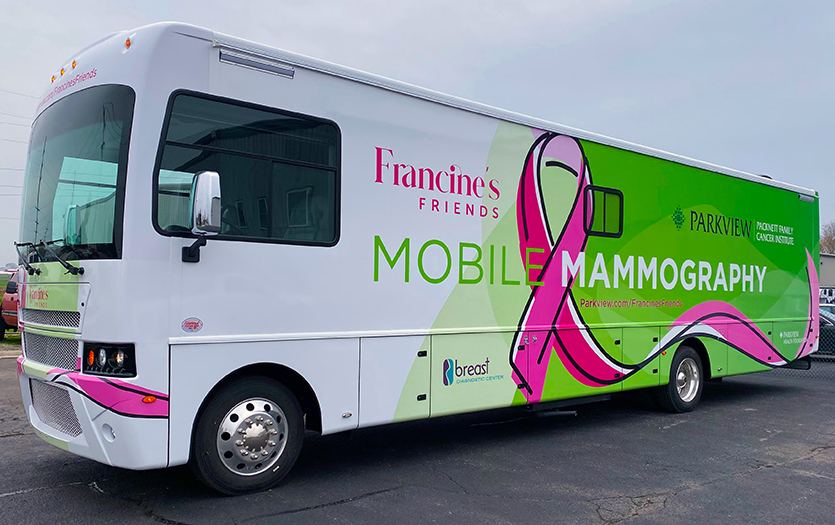
The Center to Advance Palliative Care (CAPC) reports that approximately 90 million Americans are living with a serious illness, and this number is expected to more than double over the next 25 years with the aging of baby boomers. There are more than 1,700 hospitals in the United States with a palliative care team – Parkview Regional Medical Center (PRMC) being included in this group.
Palliative Oncology, located in the Parkview Cancer Institute (PCI), is provided by a specially-trained team of physicians, nurses and other specialists who work together with a patient’s other doctors to provide an extra layer of support. It is a form of specialized medical treatment for people that focuses on relieving the symptoms and stress of a serious illness. With the goal of improving the quality of life for both the patient and the family, palliative care is appropriate at any stage in a serious illness, and can be provided along with curative treatment.
Dave and Julia Peterson are two Fort Wayne natives familiar with Parkview’s Palliative Oncology care team. The couple serve as pre-marriage counselors through their church and Dave stays active as the former President of the Allen County Genealogy Society and a current member of the Magnavox Management Club. When an unexpected diagnosis threatened to derail Dave’s activities, he learned to lean on Parkview caregivers.
“It all started with swelling in my leg on Christmas Eve of 2018 and a 90-day hospital stay. There was a two-inch difference in the size of my calves and when nothing changed after I had my legs elevated for quite some time, we decided to go to the ER,” Dave said. An ultrasound in the ER revealed that he had a blood clot extending from his groin down to his knee. With a mass located above the blood clot, it was believed to have been associated with Dave’s Mantle Cell Lymphoma (MCL), a condition he had been diagnosed with in 2016.
Dave was put on Eliquis®, an anticoagulant blood thinner, and sent home. Within the hour, his urine was bright red, which was cause for alarm. Julia brought her husband back to the hospital where an ultrasound and glomerular filtration rate (GFR) tests were completed to see how well his kidneys were functioning. Normal GFR results should be around 90. Dave was closer to 15 – meaning he was on the verge of experiencing kidney failure at the age of 76.
Dave’s blood clots were treated immediately, but what amazed him and Julia the most throughout this critical moment in their lives, was the palliative care team. Christina Drummond, MD, PPG – Palliative Care, immediately created a plan-of-action by looking at Dave’s current medications, dietary needs and possible nutrition changes, and addressed other issues he was having. She did this while collaborating with Dave’s other care providers, Satish Velagapudi, MD, PPG – Urology, and Robert Manges, MD, PPG – Oncology.
“My favorite thing is that the team always has an answer,” Julia said. “If they don’t have the answer, they’ll get it. It has made us feel very relaxed and comfortable with the process of palliative care.”
Dave added that, “The fact that Parkview offers these services is fantastic. We have really found hope with Parkview’s palliative care.”
While Dave continues his treatment for MCL and is monitored closely for blood clots, he and Julia find comfort in Parkview’s palliative care team, including Dr. Drummond and the other Parkview healthcare providers.
Dave and Julia’s story is a true example of the impact of palliative care and its role supporting complete patient care. We believe it is imperative that everyone has access to these services. With generosity from donors through the Parkview Foundations, funding the PCI’s Transformative Cancer Care Fund (TCCF) can help bridge the gap between the care that cancer patients need, such as palliative care, and what is not covered by their insurance companies.



